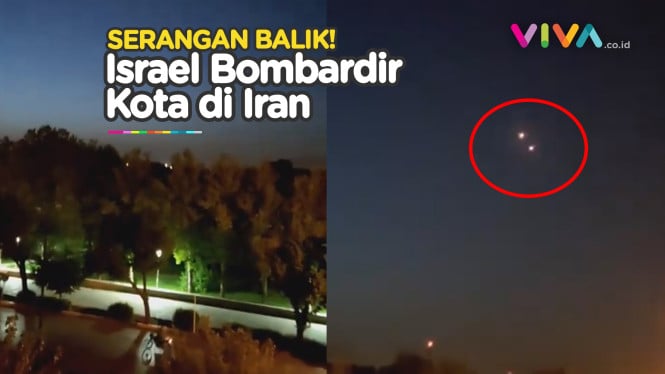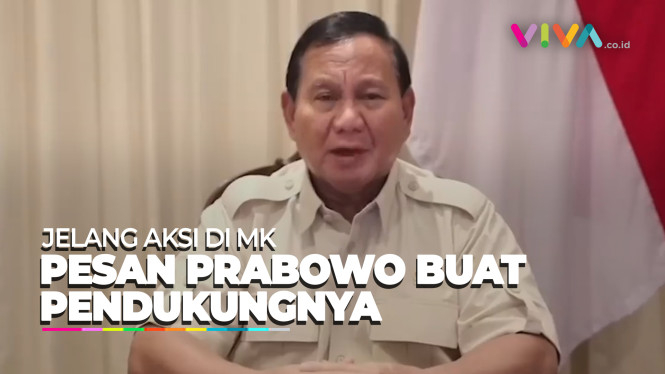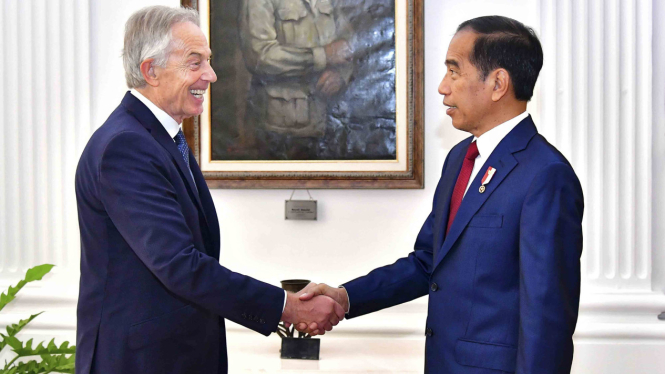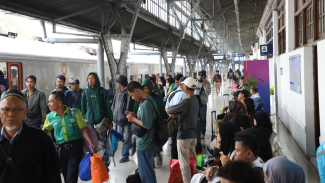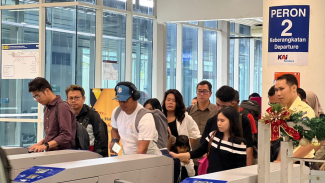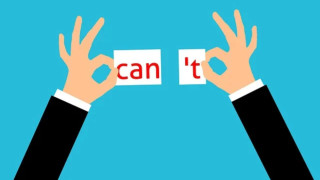Australia–Indonesia Relationship
In the year 2008, the President of Indonesia, Susilo Bambang Yudhoyono and I met on seven occasions. We’ve now entered that into the Guinness Book of Records under the bilateral relations heading.
Stephen Smith, the Foreign Minister, says that in 2008 that the two-way traffic in terms of ministerial visits was 32. If you look at the official fabric of the relationship, there is a lot going on. And this is a very broad, important and vital relationship for us, as is reflected by that level of contact and having been myself to Indonesia three times in the last year.
What does all that mean? It means for us in our part of this relationship that it is of vital importance to Australia. It means therefore, that whatever challenges we face together in our region or the world at large, we in this country Australia have a first instinct, which is how do we work with Indonesia on this.
Geraldine’s anecdote before about the UN conference that she visited is I think an interesting insight. Somewhere in the world, if we are there and you are there, we often find ourselves quite rightly talking closely with one another because after more than half a century of dealing with one another, I think we now know each other. And this is a very good thing.
The familiarity of that and the ties that bind were at work most recently in the extraordinary natural disasters which visited Australian shores – the fires in Victoria. The extraordinary generosity of the Indonesian Government and people in their remarks, their sentiments, their gifts of money to the bushfire appeal, the personnel that they sent, are known across Australia. This is a very good thing, and I thank our Indonesian friends for it.
As I said in the House of Representatives last week on this question, through those actions and through those words we know one thing in Australia - Indonesia is not just our neighbour, Indonesia is our friend. And what you said and what you did spoke very clearly to that reality. And as I also said in the parliament last week, I believe our friends in Indonesia discovered the same of us at the time of the tsunami.
There was this unspeakable act of nature, inflicted upon so many people across Aceh and also in Sumatra. But the instantaneous response in this country was that of our common humanity and that of friend and neighbour. Summed up in a few words – how can we help? What can we give?
And I think as we confronted these great challenges of nature which have left most of us speechless, in their ferocity, in the intensity and the death and destruction that they have left, it has been a sober reminder for us all. But not just of brutal power of nature, but of the enormous strength of our common humanity as neighbours and friends.
--
Let me say a few things about this relationship and where it has been and where I hope it might go in the future, and to the role of this institute and this conference in that regard.
When we in the Australian Government, and this Australian Labor Government, look back at the history of the Australian-Indonesia relationship, we are intensely proud of our role in the events of 1947. We know them, we actually understand that Prime Minister Chifley and Foreign Minister Evatt at the time were doing something quite unusual for a Western country in relation to a colonial power, namely the Kingdom of the Netherlands, with what we said as a party in the government at the time was, we will side with the people of Indonesia in their act of self-determination.
And I believe that pride is shared more broadly across the Australia political spectrum, as from the beginning, from those difficult days of independence and the difficult times which were experienced by your independence movement at the end of the Second World War, that we have some pride in what our government did then in support of Indonesia’s legitimate expression of its right to self-determination.
And I look back at what has happened with the great Indonesian Republic since 1947, and look to the present, I see this extraordinary transformation. This extraordinary act of nation building. It is remarkable across the 17,000 islands. More than 230 million people. You have fashioned this vibrant democracy. You have fashioned this strong and growing economy despite the challenges we all now face. And a society which is intrinsically tolerant.
Mention before was made of the study of pancasila and the whole concept of diversity and unity, and unity and diversity.
For Australians, this may seem to be an interesting concept as we think we have diversity here and we do. Spending a few weeks or a few months rolling around Indonesia is where you really encounter diversity. From Banda Aceh in one extreme to West Papua at the other and all points in between. From the high cultures of Borobodur through to the outermost parts of Kalimantan and Sulawesi, it is a remarkable thing which Indonesia has done.
To fashion this vibrant country, this robust democracy, this growing and strong economy, and this cultural tradition of tolerance and mutual respect. I personally would simply congratulate our friends in Indonesia for the extraordinary achievement of your national community.
When I look at the present and where this great country and this high civilisation now stands in the councils of the world, Indonesia’s place in our region is well-known and well-established and well-secured. But I believe there is a broader mandate. There you are in Indonesia as the largest Muslim country in the world. There you are as an extraordinary and dynamic Muslim democracy. And there I think you have an extraordinary role to play in the wider councils of the world and we in Australia would like to be partners with you in that.
The democracy of which I spoke before of course has been hard fought. I remember, and some of you have heard this story before, being an election monitor in the 1999 elections on behalf of the Australian parliament in Surabaya. And watching in the couple of weeks of that formal election campaign as all the parties paraded by, I won’t name them in case I offend anyone here, but it was this great individual celebration of Indonesian democracy. And given that there had been some pause prior to that, the fact that those elections and these subsequent elections can be conducted so effectively is again a tribute to the way in which the Indonesian people celebrate the freedoms with which they have.
As we turn to the future, I think there is something new which is now happening for us both. If you look at what has been our preoccupation in Canberra and Jakarta since the ’40s, it is often - not always but often – been about how we deal with each other. I really like the analogy about Tom and Jerry by the way. Tom and Jerry are now getting on pretty well. And they will.
--
But you know, here’s the different thing. And it started in the ’80s, when we began fashioning regional organisations which would embrace all of our friends and partners across South-East Asia and beyond. Your role obviously historically within ASEAN but more broadly of course with APEC. And now more recently again the Australian Summit. And this is good. Because the habits of cooperation between nations and cultures do not happen automatically, they have to be crafted, they have to be grown, they have to be nurtured.
If you look at the history of ASEAN for example, and there are those in this room who are of much greater scholarly depth in this question than I am, the history of ASEAN is a group of adversaries back there in the ’60s, not all but some, who now more than 40 years later have a habit and a culture of cooperation and mutual respect about themselves which is remarkable in the transformation which has been achieved. The historical conflict between non-communist South-East Asia and communist Indo-China, this is a remarkable achievement of institution building where Indonesia has been at the centre.
But now we enter a new period again, where the challenges we face are within our region but beyond our region, because we now are in, as we know full well from the events of the last year or so, unbridled globalisation.
And that means that in managing this extraordinary set of global challenges we now face, most acutely those now of the economy, Australia and Indonesia now find ourselves, not looking at each other, but working with each other and looking to the world.
How do we fix this? How do we work together? How do the major emerging economies and countries including Indonesia, work with other countries, including Australia, through the G20, to deal with the great challenges we now face?
How do we bring about the stabilisation of global financial markets? How do we deal with the challenges of restoring stability to global banks who currently have problems with bad assets on their balance sheets, which is in turn polluting the extent to which private credit markets can be restored to anything approaching normal health.
How do we in the meantime achieve sufficient levels of fiscal stimulus within our economies to provide the level of economic growth and jobs and performance in our economy so that our peoples are not subject to the full wrath and full impact of this crisis which is not of their making?
How do we design the rules for the financial order of the future? What should be the future role of the International Monetary Fund?
--
What Indonesia and Australia are now doing as a developed and a developing country, and through my good friendship and relationship with President Yudhoyono, is now we are working together on the problems of the world.
That is the new thing that we are doing. Not just looking at each other and working out whether we like each other or not, that is the past. I think we have worked out that we do.
It is not just building the institutions of our region, there is a lot of work still there to do. And we have proposals which we are discussing on that front as well.
But I believe there is now a much bigger and broader mandate. And if we exercise effectively the opportunities now presented to us by our common participation in this organisation, then together we can make a good contribution to the world together.
There’s a funny thing that happens at that point. When the rest of the world looks at a developed country of Christian heritage, primarily in Australia, working in close and effective collaboration with the largest Muslim country in the world, seamlessly, this actually has a very powerful message to those beyond our region.
And I think that’s something we should bear in mind as well.
--
The challenges we face as modern democracies and economies in 2009 are virtually unprecedented in the century which has passed. This will test all of our mettle. It will test the calibre of our officials, it will test the content of our policy, it will test our ability to cooperate internationally on dealing with the great challenges we now face.
But I am confident that we, together with our friends and partners across the world, can determine and execute a strategy which will see us through. It will not be easy. The challenges that we will face at the upcoming London summit of the G20 will be great indeed.
But if we focus our efforts on these great challenges and we again encourage the habits of cooperation, then there is a way through. Central to that challenge is this: to work globally to deal with the challenge of bad assets on a large continuing number of major global banks and their balance sheets, because until that is dealt with effectively in many countries around the world, the restoration of normal credit flows through the private credit markets will not occur.
We can act on stimulus, we can support growth in jobs through what we inject through budget but until that challenge is wrestled to the ground then our recovery will never be complete.
This institute and your conference, and it’s 20 years since this institute was founded, is wrestling with a challenge also at a different level. Which is, how do you take what I have just described as the healthy broad fabric of the official relationship between our two countries and take it to the highways and the byways, to the kampong? And how do we in Indonesia and in Australia, make sure that as we embark upon what will be the century of the Asia Pacific, that this is not just a relationship which is constructed between officials and nurtured through official circles, but in fact is much broader, deeper and base in our common peoples.
I believe there is a great spirit of goodwill across our peoples towards one another and that’s reflected in their responses most recently to natural disasters.
But there is more to be done and part of the pathway to doing more is looking again at how we do better these great challenges of language, of culture and religion. Australia needs to do better, a lot better, in our level of Indonesian language study, in development of Indonesian studies within our universities and in our schools and our understanding of the enormous complexity that is Indonesian Islam.
And what we have as vision for Australia, as the Government of the country is this: to create in this country in Australia, the most Asia-literate country in the west. A country which, as Geraldine said before, regards the languages and cultures of this wider region as not foreign but familiar. That we understand, intimately, the cultures and high cultures of this great region, including those which are contained within modern Indonesia.
So we have a challenge and that is to do better than we have and we intend to rise to that challenge. One of the proposals the President of Indonesia and I have agreed on is in the area of faith and belief. How do we as Australia and Indonesia, for the future, become models for how the great dialogue and understanding which can occur between Christianity and Islam, be taken further?
And we will between us, at an appropriate time soon, host between us a great conference, a large conference on interfaith dialogue. Some may say, well that is soft and that is not really a core part of a hard political or economic relationship. I disagree. I think this is in fact exceptionally important to the way in which our peoples’ understanding of one another unfolds into the future.
So it is through practical measures such as that, in language and culture and faith and interfaith dialogue, that there is much to be done and this Government of Australia intends to do it.
--
* From the transcript of Australian Prime Minister Kevin Rudd’s speech at the Australia-Indonesia Conference Dinner in Sydney, Australia, on February 19, 2009.


